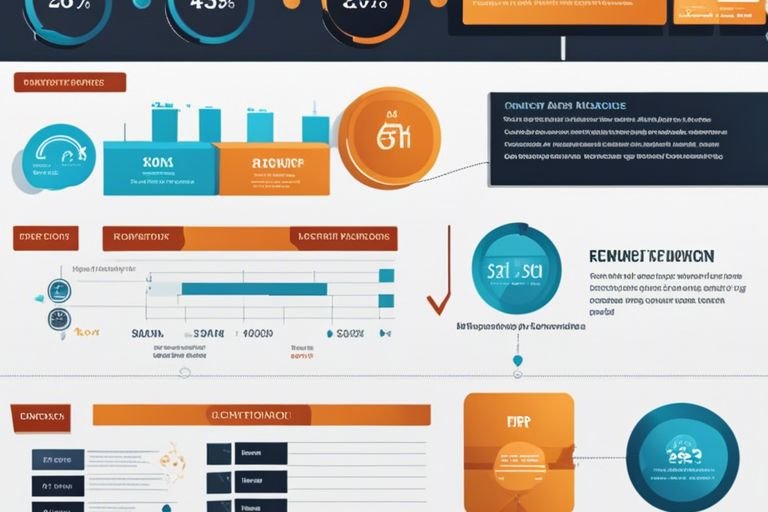What Is ERP and How Can It Transform Your Business?

Enterprises, with their complex and multifaceted operations, struggle to keep track of the various aspects of their business. This is where Enterprise Resource Planning (ERP) comes into play. ERP is a suite of integrated applications that help businesses manage and automate their processes across finance, human resources, supply chain, and more. By consolidating and centralizing data, ERP systems provide a holistic view of the business, leading to better decision-making, improved efficiency, and enhanced productivity. In this blog post, we will delve into the intricacies of ERP and explore how it can revolutionize the way your business operates.
Key Takeaways:
- ERP is an integrated software system that can streamline and automate various business processes, including accounting, inventory management, customer relationship management, and more.
- Implementing ERP can lead to improved efficiency and decision-making by providing real-time data and insights across all departments, allowing for better strategic planning and resource allocation.
- ERP can transform your business by increasing productivity, reducing costs, and enhancing customer satisfaction, ultimately leading to a more competitive and successful operation in the marketplace.

The Anatomy of ERP Systems
Some businesses may have heard the term ERP (Enterprise Resource Planning) software, but what exactly makes up an ERP system? Understanding the anatomy of ERP systems is crucial for businesses looking to transform their operations and streamline their processes.
Core Components and Modules
Modules in an ERP system are the various functional areas that the software encompasses. These can include financial management, human resources, supply chain management, customer relationship management, and more. Each module is designed to automate and streamline specific business processes, allowing for greater efficiency and integration between different departments within an organization.
Plus, ERP systems often offer the ability to customize and add additional modules based on the specific needs of a business. This flexibility allows for a tailored approach to ERP implementation, ensuring that the system aligns seamlessly with the unique requirements of the organization.
Integration and Automation of Business Processes
Integration is a key component of ERP systems, as it allows for the seamless connection of various departments and processes within a business. By integrating all functions and data into a single system, ERP enables real-time visibility and collaboration across the organization. This ensures that all employees have access to the same up-to-date information, leading to more informed decision-making and improved communication.
Furthermore, automation is a fundamental aspect of ERP systems, as it reduces the need for manual data entry and repetitive tasks. This not only saves time and resources but also minimizes the risk of human error, promoting greater accuracy and reliability in business operations.
Benefits of Implementing an ERP Solution
Assuming you are considering implementing an ERP solution for your organization, it is important to understand the numerous benefits that come with this decision. From streamlining operations to enabling data-driven decision-making, an ERP solution can truly transform the way your business operates.
Streamlining Operations and Increasing Efficiency
Benefits of implementing an ERP solution include streamlining operations and increasing efficiency across your organization. By integrating all departments and functions within a single system, ERP software eliminates redundant processes and data silos, leading to improved productivity and reduced operational costs. Additionally, automation of manual tasks and standardization of business processes result in greater efficiency and accuracy in day-to-day operations.
Data-Driven Decision Making and Reporting
Streamlining data-driven decision making and reporting is another key benefit of implementing an ERP solution. With real-time access to unified data from various sources, businesses can make informed decisions based on accurate and up-to-date information. ERP systems provide robust reporting and analytics capabilities, allowing for deeper insights into performance metrics, trends, and forecasts. For instance, sales personas can access comprehensive reports on customer behavior and purchase patterns to optimize marketing strategies and improve sales performance.
Furthermore, ERP software empowers organizations to comply with industry regulations and standards, while also providing a solid foundation for business growth.
Scalability and Flexibility for Business Growth
Benefits of implementing an ERP solution also extend to scalability and flexibility for business growth. As your organization expands, an ERP system can easily adapt to accommodate increased data volumes, users, and transactions. This scalability ensures that the software remains aligned with the evolving needs of the business. Additionally, ERP solutions offer flexibility in terms of customization and integration with other systems, allowing for seamless adaptation to changing business requirements and technology advancements.
Implementing an ERP solution facilitates persona management, product lifecycle management, and supply chain optimization, enabling businesses to respond effectively to market demands and capitalize on growth opportunities.
ERP Deployment Models and Considerations
Not all ERP systems are created equal, and the deployment model you choose can have a significant impact on the success of your implementation. When considering ERP deployment, two primary models come to mind: on-premises and cloud-based systems.
Models of On-Premises vs. Cloud-Based ERP Systems
When evaluating on-premises ERP systems, companies must consider the cost and resources required for hardware, software, and maintenance. On the other hand, cloud-based ERP systems offer scalability and accessibility, but may raise concerns about data security and customization limitations.
Factors Influencing ERP Selection and Implementation
Cloud-based ERP systems are often favored for their cost-effectiveness and ease of deployment. Factors such as business size, industry regulations, and data control should be carefully considered when selecting an ERP solution. Perceiving the unique needs and objectives of your organization is critical to a successful ERP implementation.
- Business size and scalability
- Industry regulations and compliance
- Data security and control
Deployment models should take into account the unique needs and objectives of your organization. Whether you choose an on-premises or cloud-based ERP system, it is essential to carefully consider the factors that will influence the success of your implementation.
Real-World ERP Transformation Stories
Now, let’s take a look at some real-world examples of how ERP systems have transformed businesses across various industries. These stories showcase the power of ERP in streamlining processes, improving efficiency, and driving growth.
Case Studies of Successful ERP Implementations
Implementations of ERP systems have led to remarkable transformations in companies of all sizes. Here are a few standout examples:
- A manufacturing company saw a 20% increase in production efficiency after implementing an ERP system, resulting in a 15% reduction in production costs.
- A retail chain experienced a 30% improvement in inventory management accuracy, leading to a 25% increase in sales.
- A professional services firm streamlined its project management processes with ERP, resulting in a 40% reduction in project completion time.
Lessons Learned and Best Practices
On the journey to implementing an ERP system, companies have learned valuable lessons and identified best practices that have contributed to their success. These include:
Successful ERP implementations require strong leadership support, extensive training for employees, and thorough business process analysis to ensure the system aligns with the company’s goals and objectives. Attention to data migration and change management is crucial to minimize disruption during the transition period.
The Transformational Power of ERP
The implementation of an ERP system can have a profound impact on a business, streamlining processes, improving efficiency, and providing a more comprehensive view of operations. The ability to centralize data and automate key functions can revolutionize the way an organization operates, leading to increased productivity, better decision-making, and ultimately, greater profitability. By integrating various functions such as finance, HR, and supply chain management, ERP provides a holistic approach to business management, enabling organizations to stay ahead of their competition. With the right ERP solution in place, businesses can not only adapt to changing market dynamics but also drive growth and innovation.



